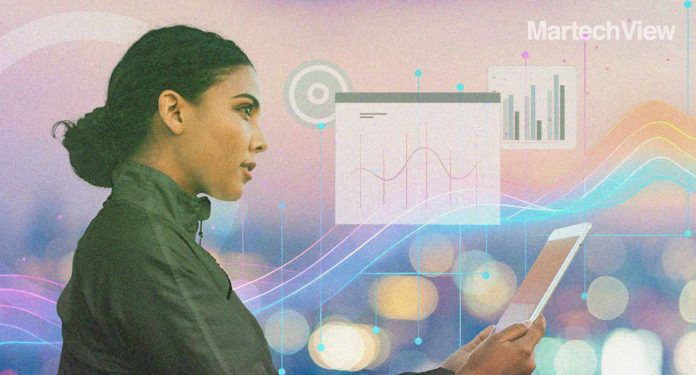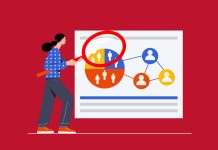Discover how AI, responsible marketing, composable data, and co-creation redefine the marketing landscape for stronger growth and customer loyalty.
As 2025 progresses into its latter half, the marketing landscape continues its significant transformation, shaped by technological advancements and a renewed focus on customer relationships. While the initial excitement surrounding generative AI (GenAI) captured headlines in the preceding year, a more nuanced and strategic approach is firmly taking hold. This year is characterized by a pragmatic integration of traditional and cutting-edge AI, a heightened emphasis on responsible marketing practices, the resurgence of sophisticated campaign management, and the established importance of composable data platforms. Furthermore, innovative co-creation strategies and the increasing adoption of AI-powered customer service are crucial differentiators for businesses aiming for sustained growth and customer loyalty as the year unfolds.
 One of the defining trends for 2025 is the aggressive adoption of traditional AI and GenAI by marketing teams. According to Jennifer Chase, Executive Vice President & Chief Marketing Officer at SAS, “In 2025, marketers will move aggressively from simpler applications of GenAI focused on productivity and content generation to more advanced AI capabilities driving competitive advantage and revenue growth. Beyond large language models (LLMs), marketers will embrace GenAI tools like synthetic data and digital twins and established AI technologies like machine learning to deliver personalized experiences and effective campaigns while respecting customer privacy.” This strategic integration is a clear marker of successful marketing initiatives later in the year.
One of the defining trends for 2025 is the aggressive adoption of traditional AI and GenAI by marketing teams. According to Jennifer Chase, Executive Vice President & Chief Marketing Officer at SAS, “In 2025, marketers will move aggressively from simpler applications of GenAI focused on productivity and content generation to more advanced AI capabilities driving competitive advantage and revenue growth. Beyond large language models (LLMs), marketers will embrace GenAI tools like synthetic data and digital twins and established AI technologies like machine learning to deliver personalized experiences and effective campaigns while respecting customer privacy.” This strategic integration is a clear marker of successful marketing initiatives later in the year.
 Underpinning this technological shift is a growing and now crucial commitment to responsible marketing. Mike Blanchard, Vice President – Marketing Technology and Personalisation Solutions at SAS, highlighted this early: “In the next year [2025], we will see a massive uptick in the development and use of responsible marketing approaches. MarTech solutions, including those based on traditional and generative AI, will help more and more organizations act responsibly with customer data, while providing relevant information, timely offers, and agile support. Responsible marketing builds customer trust and loyalty. When customers trust a brand and see value in their interactions with it, they will more readily share personal data that powers hyper-personalized marketing efforts.” This emphasis on trust and ethical data handling has become a significant theme throughout 2025.
Underpinning this technological shift is a growing and now crucial commitment to responsible marketing. Mike Blanchard, Vice President – Marketing Technology and Personalisation Solutions at SAS, highlighted this early: “In the next year [2025], we will see a massive uptick in the development and use of responsible marketing approaches. MarTech solutions, including those based on traditional and generative AI, will help more and more organizations act responsibly with customer data, while providing relevant information, timely offers, and agile support. Responsible marketing builds customer trust and loyalty. When customers trust a brand and see value in their interactions with it, they will more readily share personal data that powers hyper-personalized marketing efforts.” This emphasis on trust and ethical data handling has become a significant theme throughout 2025.
 Interestingly, as predicted, the intense GenAI hype witnessed in 2024 has begun to subside. Jon Moran, Head of MarTech Solutions Marketing at SAS, foresaw this: “In 2024, the GenAI hype machine was in overdrive… In 2025, we’ll see a softening interest in and hype around GenAI, and a renewed focus on more traditional AI technologies, particularly for front-end CX applications. More and more organizations will apply natural language processing, text analytics, sentiment analytics, speech-to-text AI, and good old predictive analytics to power chatbots, virtual assistants, automated ticketing, support, and more.” This recalibration towards practical application is evident as we move through the year.
Interestingly, as predicted, the intense GenAI hype witnessed in 2024 has begun to subside. Jon Moran, Head of MarTech Solutions Marketing at SAS, foresaw this: “In 2024, the GenAI hype machine was in overdrive… In 2025, we’ll see a softening interest in and hype around GenAI, and a renewed focus on more traditional AI technologies, particularly for front-end CX applications. More and more organizations will apply natural language processing, text analytics, sentiment analytics, speech-to-text AI, and good old predictive analytics to power chatbots, virtual assistants, automated ticketing, support, and more.” This recalibration towards practical application is evident as we move through the year.
 Adding another layer to this evolving landscape is the re-emergence of campaign management as a critical function. Kate Parker, Director of Markets and Growth for Global Customer Intelligence Practice at SAS, said, “Not long ago, brands were eager to move away from the talk of campaigns to focus on journeys… As many organizations move to a cloud data strategy, campaign management will return in vogue in 2025. But buyer beware; while many vendors promise customer segmentation capabilities, they aren’t living up to the promise of delivering the segmentation, scalability, and performance to power customer personalization truly.” This resurgence is a noticeable trend, with marketers seeking more robust segmentation tools.
Adding another layer to this evolving landscape is the re-emergence of campaign management as a critical function. Kate Parker, Director of Markets and Growth for Global Customer Intelligence Practice at SAS, said, “Not long ago, brands were eager to move away from the talk of campaigns to focus on journeys… As many organizations move to a cloud data strategy, campaign management will return in vogue in 2025. But buyer beware; while many vendors promise customer segmentation capabilities, they aren’t living up to the promise of delivering the segmentation, scalability, and performance to power customer personalization truly.” This resurgence is a noticeable trend, with marketers seeking more robust segmentation tools.
Also Read: Why Sales Teams Can’t Afford to Skip AI Training
 The architecture of customer data platforms (CDPs) has also undergone a significant shift in 2025, with composability becoming a key characteristic. Lisa Loftis, Principal Product Marketing Manager for Customer Intelligence at SAS, accurately predicted this, explaining, “Composability, the latest customer data platform (CDP) trend, will radically reshape the CDP market in 2025. Composability is the ability to access and use data where it lives, such as in a cloud data warehouse, rather than requiring it to be moved into a CDP database… Functionally, composability helps unbundle some nonfoundational capabilities of a CDP… and enables marketers only to use the capabilities they need.” This composable approach is now a significant factor in CDP evaluations.
The architecture of customer data platforms (CDPs) has also undergone a significant shift in 2025, with composability becoming a key characteristic. Lisa Loftis, Principal Product Marketing Manager for Customer Intelligence at SAS, accurately predicted this, explaining, “Composability, the latest customer data platform (CDP) trend, will radically reshape the CDP market in 2025. Composability is the ability to access and use data where it lives, such as in a cloud data warehouse, rather than requiring it to be moved into a CDP database… Functionally, composability helps unbundle some nonfoundational capabilities of a CDP… and enables marketers only to use the capabilities they need.” This composable approach is now a significant factor in CDP evaluations.
 Furthermore, 2025 has seen the rise of co-creation as a valuable engagement strategy. Mike Turner, Principal Business Advisor for Customer Intelligence at SAS, highlighted this: “While many organizations have worked with customers to create features or products, AI and GenAI are taking this to another level. In the next year [2025], more brands across industries will share product ideas and prototypes with customers and ask them to use tools like AI-powered image generators to develop them further… These insights will lead to improved campaigns, more effective communication, and better products and services.” This collaborative approach is indeed gaining traction.
Furthermore, 2025 has seen the rise of co-creation as a valuable engagement strategy. Mike Turner, Principal Business Advisor for Customer Intelligence at SAS, highlighted this: “While many organizations have worked with customers to create features or products, AI and GenAI are taking this to another level. In the next year [2025], more brands across industries will share product ideas and prototypes with customers and ask them to use tools like AI-powered image generators to develop them further… These insights will lead to improved campaigns, more effective communication, and better products and services.” This collaborative approach is indeed gaining traction.
 In the realm of customer service, GenAI-powered solutions are increasingly becoming essential. Mari Nilsson Björkman, Global Marketing Lead for Telecom Industry at SAS, correctly anticipated this: “In 2025, more organizations will turn to GenAI-powered customer service, with chatbots and self-service channels augmenting support professionals. The result? Customers will gain more control, retrieving instant answers to most questions at their convenience without tedious queues. And brands will be able to provide the exceptional service customers expect without breaking the bank.” Adopting these solutions is now a clear trend in enhancing customer experience.
In the realm of customer service, GenAI-powered solutions are increasingly becoming essential. Mari Nilsson Björkman, Global Marketing Lead for Telecom Industry at SAS, correctly anticipated this: “In 2025, more organizations will turn to GenAI-powered customer service, with chatbots and self-service channels augmenting support professionals. The result? Customers will gain more control, retrieving instant answers to most questions at their convenience without tedious queues. And brands will be able to provide the exceptional service customers expect without breaking the bank.” Adopting these solutions is now a clear trend in enhancing customer experience.
 Finally, marketers in 2025 are indeed approaching the concept of “zero copy data” with cautious optimism, as suggested by Jennifer Pearson, Customer Intelligence Product Marketing Manager at SAS, who advised, “In 2025, marketers will tread carefully around zero copy data, a buzzword for systems in the CDP space designed to avoid data duplication… While zero-copy data seems promising on paper, examining how well it can minimize data duplication and deliver real-time insights is important. As the saying goes, your results may vary.” This cautious approach reflects a deeper understanding of the complexities involved.
Finally, marketers in 2025 are indeed approaching the concept of “zero copy data” with cautious optimism, as suggested by Jennifer Pearson, Customer Intelligence Product Marketing Manager at SAS, who advised, “In 2025, marketers will tread carefully around zero copy data, a buzzword for systems in the CDP space designed to avoid data duplication… While zero-copy data seems promising on paper, examining how well it can minimize data duplication and deliver real-time insights is important. As the saying goes, your results may vary.” This cautious approach reflects a deeper understanding of the complexities involved.
Also Read: Can AI Turn MarTech Into a Mind Reader?
In conclusion, as we navigate the latter part of 2025, the predictions made by these thought leaders are largely proving to be accurate. The strategic integration of AI, the continued emphasis on responsible practices, the evolution of data platforms, and the adoption of innovative engagement strategies define the current marketing landscape. Their insights provide valuable context for understanding the key shifts shaping this year’s customer engagement and business growth.










